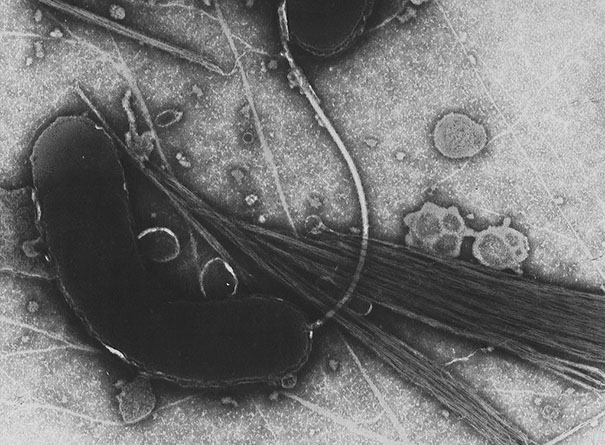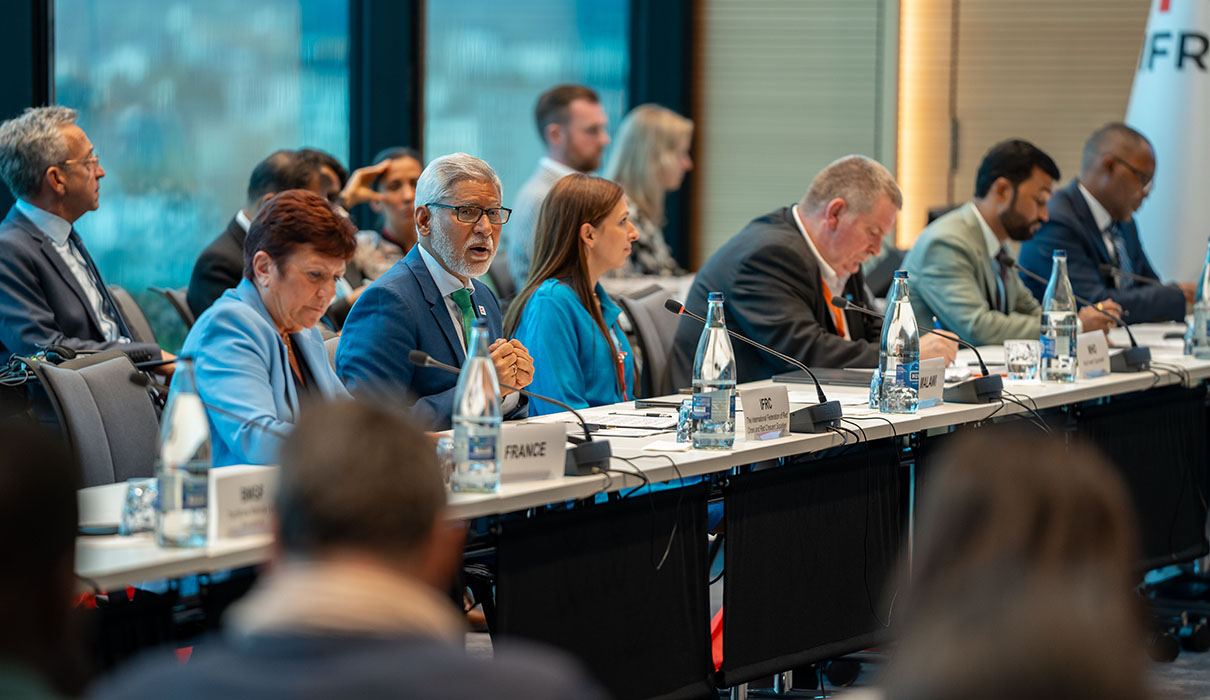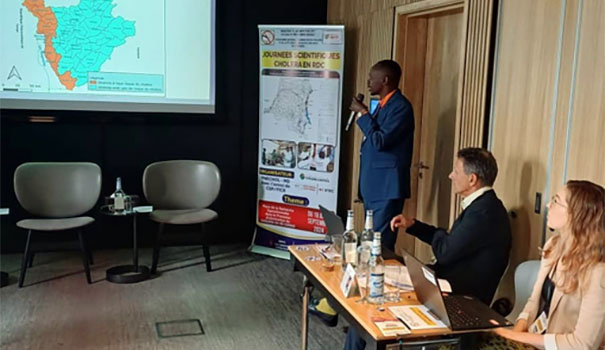Depuis la création du GTFCC, ses organes et ses partenaires fournissent un soutien technique à plus de 50 pays identifiés comme prioritaires. Ce soutien a régulièrement augmenté au fil des ans, en réponse à l’engagement croissant des pays dans le programme Mettre fin au choléra : Feuille de route mondiale à l’horizon 2030 et en raison de la détérioration de la situation épidémique mondiale. En 2020, la CSP a été établie en tant qu’organe opérationnel pour soutenir les partenaires du GTFCC.
L’identification des zones prioritaires d’interventions multisectorielles (PAMI) est d’une importance cruciale pour cibler les stratégies nationales de lutte contre le choléra et d’élimination de la maladie, conformément aux principes de la Feuille de route mondiale pour mettre fin au choléra.
Tous les pays touchés par le choléra et les pays à risque sont encouragés à identifier leurs PAMI à l’aide des méthodes du GTFCC.
Le GTFCC effectue, sur demande, des examens techniques indépendants pour l’identification des PAMI. Ces examens visent à fournir des conseils pratiques et des recommandations aux pays avant qu’ils ne passent à la planification des interventions dans les PAMI.
Tableau de bord permettant de consulter et de télécharger des informations sur le statut des PAMI dans les pays cibles du GTFCC et de consulter une carte mondiale des PAMI.
Explorer le tableau de bord des PAMI
Le GTFCC fournit aux pays un soutien technique pour élaborer et mettre en œuvre des plans nationaux de lutte contre le choléra, en veillant à l’intégration multisectorielle et à l’opérationnalisation des plans existants. En septembre 2024, 10 pays avaient élaboré ou révisé leurs NCP à l’aide d’une méthodologie du GTFCC. Onze autres pays sont engagés dans ce processus.
Inter-sectoral collaboration and building of a strong prpardness & response strategy
Implementation of adapted longterm sustainable WASH solutions for populations most at risk of cholera.
Effective routine surveillance and laboratory capacity at the peripheral level to confirm suspected cases, inform the response, and track progress towards control and elimination.
Large scale use of OCV to immediately reduce disease burden while longterm cholera control strategies are put in place.
Enhanced readiness for cholera outbreaks through capacity building for staff, and pre-positioning of resources for diagnosis, patient care, and emergency WASH intervention.
Enhance communication on cholera control strategies, hygiene promotion, and cholera risk, by mobilising community leaders as agents of change.">Community engagement
Le GTFCC soutient les pays en organisant et en facilitant des ateliers, des programmes de formation et des événements destinés à améliorer les compétences et les connaissances des agents de santé locaux et des fonctionnaires, en mettant l’accent sur la prévention, la surveillance, la réponse aux épidémies et la prise en charge des cas de choléra.
En Zambie, la CSP a formé 120 agents de santé à la préparation et à la réponse aux épidémies de choléra, en mettant l’accent sur les interventions ciblées dans les zones touchées (CATI). Les CATI consistent à cibler rapidement les cas de choléra par des mesures localisées, comme la promotion de l’hygiène et le traitement de l’eau, afin d’enrayer la propagation. Cette approche s’est avérée efficace pour réduire rapidement la transmission dans les zones à risque.
Le GTFCC mobilise des ressources financières, humaines et matérielles pour soutenir les activités de maîtrise et d’élimination du choléra, notamment en tirant parti des investissements du secteur privé et en alignant le financement international sur les priorités nationales en matière de choléra.
 Le GTFCC aide les pays à préparer et à soumettre des demandes pour des campagnes de vaccination orale contre le choléra, en fournissant des conseils sur la planification, le suivi et l’évaluation afin de garantir un déploiement efficace du vaccin. Avec le soutien de GAVI, de l’ICG et d’autres partenaires, notre aide directe aux pays a contribué à 68 campagnes réactives et préventives de vaccination orale contre le choléra depuis janvier 2022, ce qui s’est traduit par l’envoi de 80 millions de vaccins vers 22 pays.
Le GTFCC aide les pays à préparer et à soumettre des demandes pour des campagnes de vaccination orale contre le choléra, en fournissant des conseils sur la planification, le suivi et l’évaluation afin de garantir un déploiement efficace du vaccin. Avec le soutien de GAVI, de l’ICG et d’autres partenaires, notre aide directe aux pays a contribué à 68 campagnes réactives et préventives de vaccination orale contre le choléra depuis janvier 2022, ce qui s’est traduit par l’envoi de 80 millions de vaccins vers 22 pays.
Explorer le tableau de bord des OCV

Le GTFCC renforce les capacités de surveillance des pays en proposant des outils, des méthodologies, des formations pratiques en laboratoire, des évaluations et des conseils techniques pour améliorer la collecte, la communication et l’analyse des données, facilitant ainsi la détection précoce des épidémies de choléra et une réponse efficace.
Le GTFCC encourage la collaboration entre pays voisins pour gérer les épidémies de choléra qui traversent les frontières, en promouvant des groupes de travail régionaux et des efforts conjoints pour prévenir la propagation du choléra.
La CSP a organisé des réunions transfrontalières entre les pays touchés par le choléra, comme en avril 2024, lorsque des collègues de Zambie et de RDC se sont rencontrés pendant 4 jours le long de leur frontière pour renforcer la collaboration et le partage d’informations. Ces plateformes contribuent à coordonner les efforts de lutte contre le choléra, en veillant à ce que les épidémies ne se propagent pas au-delà des frontières et à ce que les ressources soient allouées de manière efficace. Cette coordination est cruciale pour la gestion du choléra dans les régions où les mouvements de population sont fréquents.

Le GTFCC aide les pays à mobiliser un plus large éventail de parties prenantes, notamment les ministères, les partenaires de développement et le secteur privé, afin d’obtenir un engagement politique et financier en faveur des efforts de lutte contre le choléra.
En savoir plus sur les actions de plaidoyer
Dans les zones touchées par des conflits ou des catastrophes naturelles, les partenaires du GTFCC fournissent un soutien sur mesure afin d’intégrer la lutte contre le choléra dans des opérations d’urgence plus larges, garantissant ainsi la continuité des services de prévention et de traitement.
Lors de la récente crise dans le camp de réfugiés de Cox’s Bazar au Bangladesh, la CSP a travaillé en étroite collaboration avec le ministère de la Santé et ses partenaires pour renforcer la préparation à la lutte contre le choléra. Il s’agissait notamment de soutenir les campagnes de vaccination, de former les professionnels de la santé et de coordonner l’action avec les autorités locales afin de garantir une réponse rapide. Ces efforts ont permis d’atténuer l’impact de l’épidémie et d’empêcher sa propagation dans le camp.

Le GTFCC facilite l’intégration de la recherche dans les plans opérationnels, en aidant les pays à identifier les lacunes en matière de recherche et à mener des études qui éclairent les interventions contre le choléra fondées sur des données probantes.
Le GTFCC facilite également le partage des meilleures pratiques au sein des communautés mondiales et nationales de lutte contre le choléra.